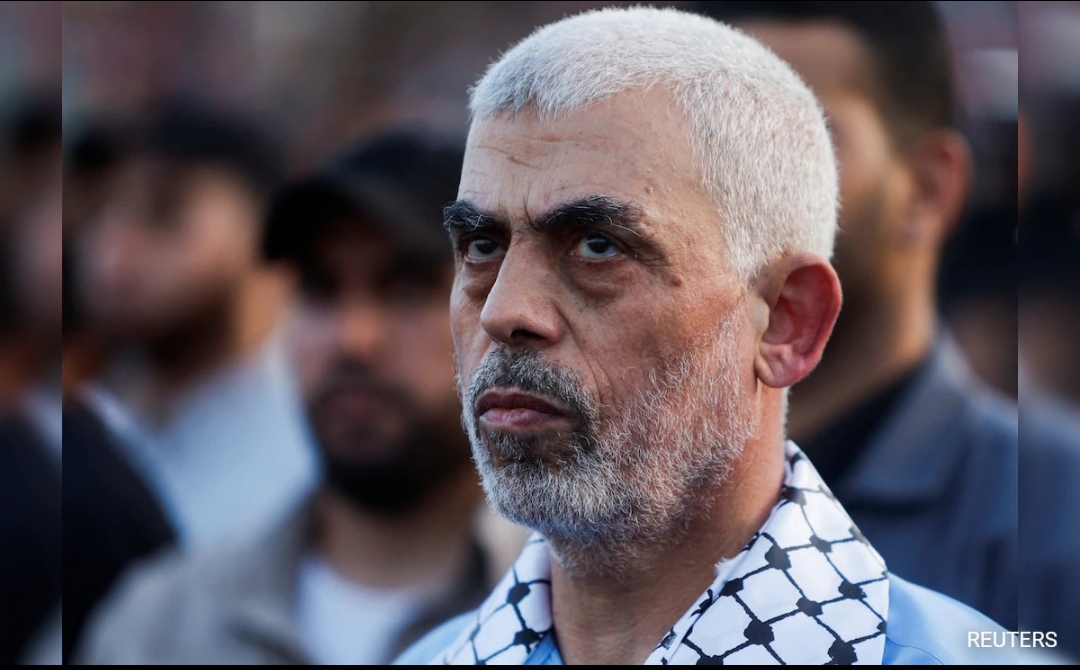The killing of Yahya Sinwar, the alleged mastermind behind the October 7 massacre of hundreds of Israeli citizens, marks a pivotal moment in Israel’s year-long war with Hamas. Confirming Sinwar’s elimination, Israeli Prime Minister Benjamin Netanyahu has hailed it as a major step towards dismantling the Palestinian terrorist organization.
However, as history in the region has shown, the consequences of such actions are far-reaching and complex, raising questions about the future of the Israel-Hamas war and broader Middle Eastern political landscape.
A Major Blow To Hamas
Yahya Sinwar, once the chief of Hamas in Gaza, emerged as the face of the militant group’s leadership after Ismail Haniyeh’s alleged assassination by Israeli agencies in Iran. He played a crucial role in orchestrating the October 7 attack, which resulted in the death of over 1,200 Israeli nationals and the kidnapping of more than 250 hostages.
His death is seen as a significant victory for Israel, which has remained determined to contain Hamas’ influence in Gaza.Sinwar’s elimination not only serves as a symbolic victory for Israel, “settling the score” for the tragic events of last year, but it also delivers a significant blow to Hamas’ operational capabilities.
With its top leadership eliminated, the group now faces increased difficulty in coordinating resistance efforts, which may lead to internal divisions and power struggles.
Will This End The Israel-Hamas War?
Netanyahu’s claim that Sinwar’s death marks the “beginning of the end” for Hamas may be premature. While the assassination removes a key figure, it does not guarantee a swift resolution to the Israel-Hamas conflict. The ongoing military campaign in Gaza and Israel’s confrontations with Hezbollah in Southern Lebanon signal that the war remains multi-dimensional.
Furthermore, Sinwar’s death could further provoke hostilities rather than de-escalation, as various factions within Hamas may seek to avenge their fallen leader. The possibility of a ceasefire remains uncertain, as US efforts to broker peace hinge on the return of hostages and Hamas’ willingness to engage in negotiations.
US officials have described Sinwar as a “chief obstacle” to peace talks, suggesting that his death may open a window for diplomacy. However, it is unclear whether his successors will be more amenable to ceasefire discussions or continue to pursue armed resistance.
Regional Impact Of Killing
Sinwar’s assassination will have repercussions beyond Gaza. Hezbollah’s announcement of a “new phase” in its conflict with Israel indicates a potential escalation on the northern front. With Iran continuing to support armed resistance groups across the region, including in Yemen, Iraq, and Syria, the risk of a broader conflict remains high.
The killing of Sinwar could also further fuel regional resistance movements, as Tehran and Hezbollah vow to strengthen their anti-Israel efforts in his honour. The consequences of Sinwar’s death are likely to be felt in Lebanon, where cross-border strikes and ground engagements have already resulted in significant casualties.
As Israel expands its military operations, the potential for direct confrontation with Iran or its proxies looms larger. Such a scenario would not only complicate the Israel-Hamas conflict but could also plunge the entire Middle East into a prolonged war.
Humanitarian Crisis
Amid these developments, the humanitarian situation in Gaza has reached a breaking point. With tens of thousands dead and many more facing dire conditions, the conflict’s toll on civilians is immense.
The UN warns of catastrophic hunger and extreme poverty in Gaza, conditions that will persist long after the fighting ends.The killing of Sinwar does not address the underlying grievances that fuel the conflict—issues of occupation, displacement, and economic hardship.
Will Peace Return To Middle East?
Lasting peace will require more than military victories; it will necessitate addressing the root causes of Palestinian unrest. International pressure for a ceasefire is mounting, but without a viable political solution, any lull in fighting could be temporary.
While Sinwar’s death marks a critical juncture in the conflict, it is not necessarily the beginning of the end for Hamas. If anything, it highlights the cycle of violence that characterizes the Israel-Hamas struggle.
The path to peace will require not only dismantling terrorist networks but also creating conditions that foster reconciliation and stability for both Israelis and Palestinians.
As the dust settles from this latest development, the world watches to see if the elimination of Yahya Sinwar can indeed change the course of a war, or if it will serve as yet another catalyst for continued conflict.













